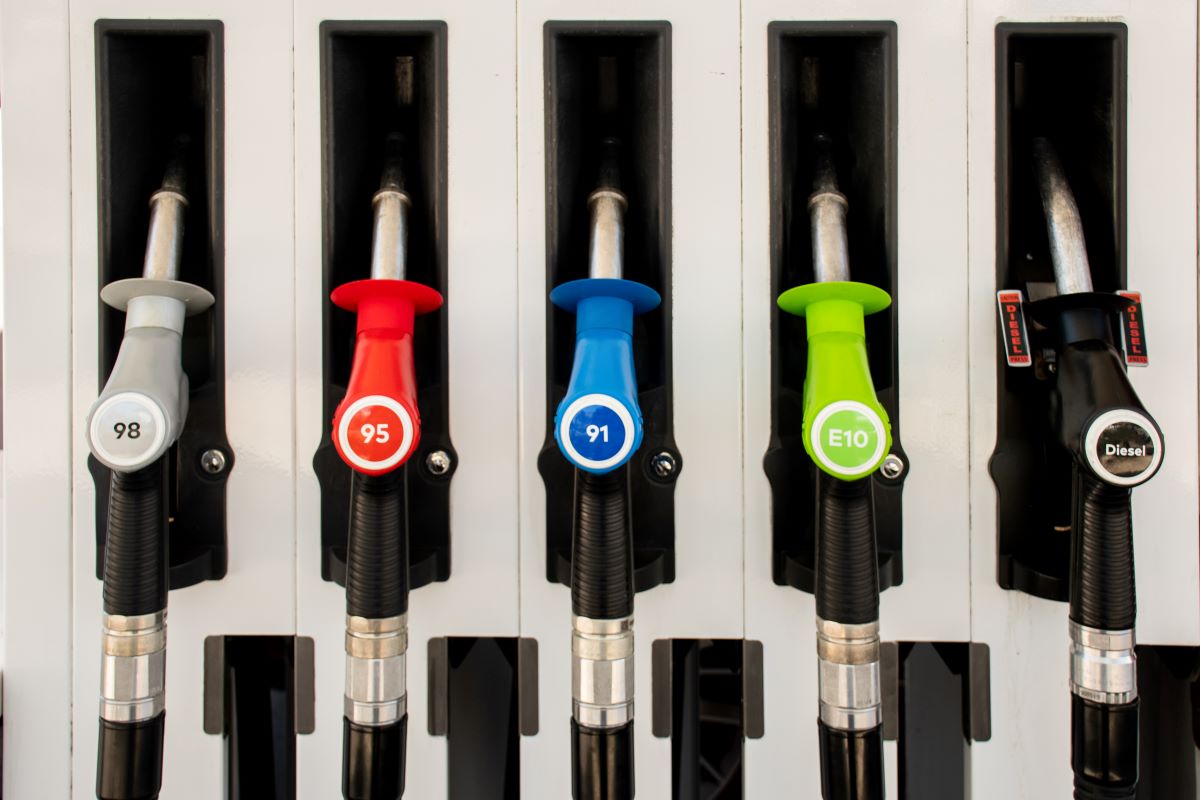Differences Between Premium Petrol and Normal Petrol

Do you know about premium and normal petrol categories?
Premium petrol and normal petrol vary in octane number and additive contents. Premium petrol has a higher octane number than ordinary petrol, making it more expensive. The car's fuel filler cap indicates the type of fuel required and the minimum octane amount of fuel to be filled in the car for good engine performance.
Keep reading to learn more about premium and normal petrol, their differences, other types, and more.

Table of Contents

What is Premium Petrol?
With a high octane number, Premium petrol is high-grade petrol that contains additives to keep the engine carbon-free. This ensures the engine is free from carbon deposits and avoids sludge formation.
Premium petrol is used extensively in high-performance cars and is suitable for engines with a high compression ratio. It has an octane number of 91 or higher and is responsible for less knocking in your car's engine.
What is Normal Petrol?
Normal petrol has a lower octane number of 87 and does not contain additives, which makes it cheaper than other petrol variants. Low-compression engines should be fed by normal petrol for smooth functioning, while a high-performance engine cannot function on normal petrol.
Operating a high-performance car on normal petrol can lead to knocking off the car's engine.
What is the Difference Between Premium Petrol vs. Normal Petrol?
Following is a table that marks the difference between premium and normal petrol in terms of various parameters like octane number, price, additives, and much more:
Premium Petrol vs Normal Petrol - Which is Better for Your Vehicle?
Usually, the best performance of the vehicle is achieved by using the fuel advised by the manufacturer as per the particular engine. So, let’s discuss why and which is better for your vehicle.
One of the most significant advantages of premium fuel is that it is more difficult to ignite. Hence, the premium petrol forces the vehicle’s engine to operate under a higher compression and develop more power and, this is why engines made for higher octane fuel are compatible with premium petrol.
Therefore, if your vehicle’s engine is developed for a lower octane fuel then the premium petrol is not necessary as it won’t change anything. So, which petrol is better entirely depends on the vehicle’s engine.
Different Types of Petrol
Produced by catalytic crackers, petrol is a mixture of hydrocarbons like paraffin, olefins, and naphthenes. In this process, the big hydrocarbon molecules break into smaller molecules that vaporise using the catalyst.
At the end of the crude oil processing, petrol is extracted, and additives are added to enhance fuel quality. Good quality petrol ensures the absence of carbon deposits in the engine and also disables sludge formation.
Following are the different variants of petrol that are available in the market, as per their octane number:
- Normal Petrol: Octane number 87.
- Power Petrol: Octane number 87 with additives.
- Premium Petrol: Octane number 91.
- Extra Premium Petrol: Octane number XP100.
When to Use Premium Petrol for Your Car?
Consider replacing normal petrol with premium petrol in your car if your car engine is knocking frequently because of the fuel type or you have been suggested to switch the petrol type after a car inspection. Certain cars are meant to be run on premium petrol, so one must go through their owner's manual to know the right type of petrol for your car.
Therefore, depending on your vehicle's engine, you must choose a petrol type for your car. High-performance cars must run on premium or extra premium petrol for effective performance.
The minimum octane number for petrol in India is 91; therefore, all cars run efficiently with regular petrol. However, one must check the manual to confirm the type of petrol suitable for your vehicle.
What is Octane Number?
The Octane number measures the fuel's capability to withstand crashing when ignited in a blend with air in the internal combustion engine's cylinder.
Determining the octane number requires contrasting the fuel's knock intensity under typical conditions to blend two reference fuels: heptane, which knocks easily, and iso-octane, which resists knocking.
What are Additives?
Chemicals like lubricants, engine cleaners, and gasoline performance enhancers are examples of additives. They are added to kerosene, diesel, gasoline, and other fuels to enhance particular qualities or guarantee that certain objectives are met.
















